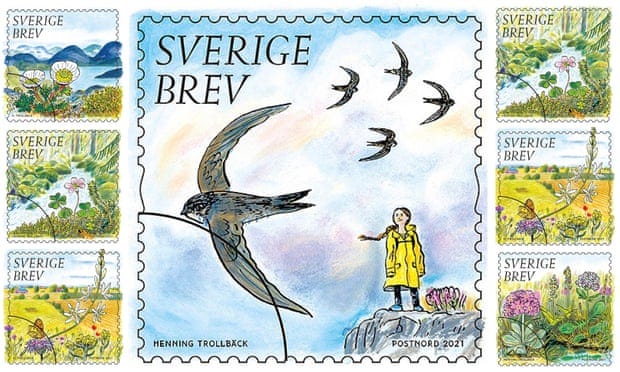News briefs: Countries pledge biodiversity defense
Plus, Greta's getting a stamp, and record ocean temps fuel disasters
50 countries vow to protect 30% of land and sea by 2030
At least 50 countries have committed to protecting 30% of the planet, including land and sea, over the next decade to halt species extinction and address climate change issues, according to a report from The Associated Press from the One Planet Summit. The AP noted that about 30 leaders, government officials and heads of international organizations participated in the virtual summit, but absent were officials from the U.S., Russia, India and Brazil.
Greta’s getting a stamp
Climate activist Greta Thunberg will appear on a postal stamp in her native Sweden, part of a series focusing on the environment. Sweden’s postal company, Postnord, said in a statement that stamp designs “should reflect our time, where the environmental issue has been relevant and present for many years, not least through Greta Thunberg’s strong voice.”
In hot water
Record ocean temperatures in 2020 fueled extreme weather impacts, according to new scientific analysis. A report in The Guardian says more than 90% of the heat trapped by carbon emissions is absorbed by the oceans, making their warmth an undeniable signal of the accelerating crisis. Researchers found the five hottest years in the oceans had occurred since 2015, and that the rate of heating since 1986 was eight times higher than that from 1960-85. “Ocean warming is the key metric and 2020 continued a long series of record-breaking years, showing the unabated continuation of global warming,” said John Abraham, a professor at the University of St. Thomas in Minnesota, and one of the team behind the new analysis.
Species declared extinct in 2020
Dozens of frogs, fish, orchids and other species — many unseen for decades — may no longer exist due to climate change. According to a report in The Relevator, an initiative of the Center for Biological Diversity, scientists recently warned about the rise of “extinction denial,” an effort much like climate denial to mischaracterize the extinction crisis and suggest that human activity isn’t really having a damaging effect. The report also cites reasons for optimism, including a study that found that conservation efforts have reduced bird extinction rates by 40%.
Can insurance-linked securities fuel investment in climate adaptation?
Resilience bonds: While current instance-linked securities (ILS) instruments are useful for transferring risks, they are not designed to reduce underlying risks or build resilience to disasters, writes Lauren Carter, climate finance specialist for the UN Development Program. “As climate change continues to exacerbate the impacts of natural hazards, next-gen ILS instruments, such as resilience bonds, leverage upfront investments in resilience as a way to reduce insurance premiums and kick off a virtuous cycle of pricing incentives for investing in protection and preparedness.” Read more in Carter’s brief.

